The Bell of Chornobyl is a film of genre Documentary
The Bell of Chornobyl (1987)
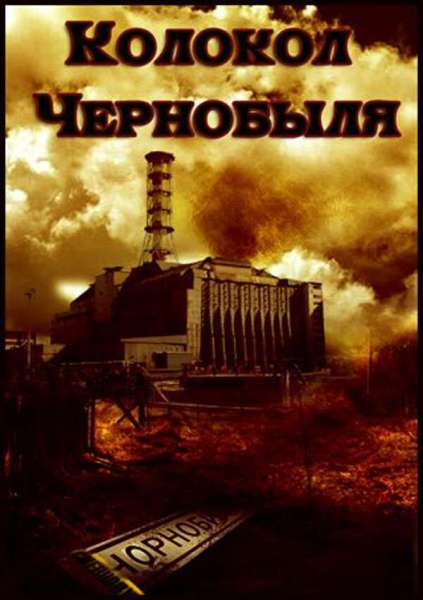
If you like this film, let us know!
- Infos
- Casting
- Technical infos
- Photos
- Videos
- Film quotes
- Characters
- Music
- Awards
Genres Documentary
Themes Environmental films, Documentary films about environmental issues, Documentary films about historical events, Documentary films about nuclear technology, Documentary films about technology, Disaster films
Rating68%










The Bell of Chernobyl is a 1987 documentary film directed by Russian filmmaker, Rollan Sergienko. The film was made following the Chernobyl nuclear disaster and includes a variety of accounts of the incident and its implications for nearby communities. The film's synopsis describes it as presenting "an indictment against the irresponsible application of nuclear technology, armament and the Cold War." The film is presented in Russian language with English subtitles and is 89 minutes in duration. It screened at IDFA in the Netherlands in 1988. The New York Times indicates that an 84 minute version of the film exists. The film is also known by the alternative titles The Poison of Chernobyl and Le Tocsin de Tchernobyl.
Comments
Leave comment :
Suggestions of similar film to The Bell of Chornobyl
There are 8977 with the same cinematographic genres, 4136 films with the same themes (including 8 films with the same 6 themes than The Bell of Chornobyl), to have finally 70 suggestions of similar films.If you liked The Bell of Chornobyl, you will probably like those similar films :
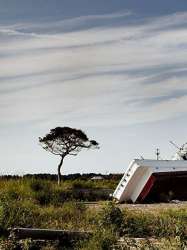
Genres Documentary
Themes Environmental films, Seafaring films, Transport films, Documentary films about environmental issues, Documentary films about historical events, Documentary films about nuclear technology, Documentary films about technology, Disaster films, Films about earthquakes
Rating67%





Surviving the Tsunami brings together social, environmental, and personal perspectives of the national catastrophe of the Fukushima nuclear meltdown. In the documentary, Kyoko Miyake travels back to her hometown in Namie, Fukushima, to revisit her old life and assess the trauma still lingering from the disaster. She revisits Namie, her mother's hometown and meets the people who depended on the success of the nuclear plant for their livelihood. The film also follows Bunsei Watanabe and Kyoko Miyake's Aunt Kuniko, two people who hope for the rejuvenation of Namie, despite the disaster that has occurred. Despite having lost family, friends, and jobs due to the meltdown and subsequent fear of the contamination zone, these two individuals are determined to rebuild their towns and neighborhoods and bring back the sense of community they once had. The film follows the residents of Namie, with emphasis on the experiences of Aunt Kuniko, as they come to terms with the reality of living in or near the "radiation zone" left in the wake the plant's nuclear meltdown. Surviving the Tsunami offers a different perspective on Japanese culture, national identity, human adaption, and global nuclear energy and proliferation.

3.11: Surviving Japan (2013)
, 1h30Directed by Simon Hilton
Genres Documentary
Themes Environmental films, Seafaring films, Transport films, Documentary films about environmental issues, Documentary films about historical events, Documentary films about nuclear technology, Documentary films about technology, Disaster films, Films about earthquakes
Rating81%





The film spans from March 11, 2001 to September 19, 2011, starting with Noland's own experience in the Tōhoku Earthquake and tsunami, Fukushima Daiichi nuclear disaster followed by volunteer activities in Ofunato
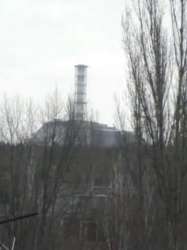
White Horse (2008)
, 18minutesOrigin USA
Genres Documentary
Themes Environmental films, Documentary films about environmental issues, Documentary films about historical events, Documentary films about nuclear technology, Documentary films about technology, Disaster films
Rating69%





The beginning of the film starts with DeLeo, Bisson and Surkov driving through Kiev. This is introduced as the beginning of their journey to Pripyat, near the ground zero of Chernobyl. Once they reach the outpost outside the exclusion zone, we see that the area surrounding Pripyat is very deserted and dark. Once in the city, we see Surkov's old home, which he explains has been robbed of almost all its belongings due to looters. Yet there are still some mementos in the old apartment, including the wallpaper he and his mother put up, the training bars his father bought for him, an old rubber ball he claims was his favorite and a white horse poster plastered on the wall of his old bedroom. The pain he feels is evident. When he sees an old calendar on a door, he rips a large portion off, claiming "the year ended on April 26th". Outside the door of the apartment, he remarks how he wishes he could stay forever. He throws his old ball through the door and walks out of the apartment complex. The film ends with Surkov snapping some twigs in an old courtyard and then an image of the car they traveled in leaving the exclusion zone.

The Unnamed Zone (2006)
, 1h20Directed by Carlos Rodríguez
Genres Documentary
Themes Environmental films, Documentary films about environmental issues, Documentary films about historical events, Documentary films about nuclear technology, Documentary films about technology, Disaster films
Rating63%





The Spanish film crew led by Carlos Rodriguez is following the life stories of three children - Lidia Pidvalna, Anastasia Pavlenko, and Andriy Kovalchuk - whose lives were drastically changed after an explosion at the Chernobyl Nuclear Power Station on April 26, 1986. Through the documentary, the children and their families "living perilously close to the exclusion zone around the destroyed station recount their fears, dreams, fantasies, and hopes for the future." Each child holds a "Chernobyl certificate" which bestows access to government grants and aid and is a gruesome reminder of their existential reality.

The Russian Woodpecker (2015)
, 1h20Origin USA
Genres Documentary, Historical
Themes Environmental films, Documentary films about environmental issues, Documentary films about historical events, Documentary films about nuclear technology, Documentary films about technology, Disaster films
Rating66%





The films focuses on Fedor Alexandrovich's research into the cause of the Chernobyl nuclear disaster in Ukraine and its potential connection to a Soviet Cold War-era structure, the Duga over-the-horizon radio antenna. His investigation is interrupted and impacted by the 2014 EuroMaidan uprising, which eventually led to the ouster of the pro-Russian president Viktor Yanukovych.
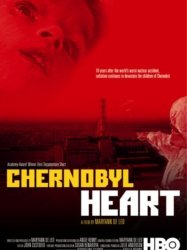
Chernobyl Heart (2003)
, 39minutesOrigin USA
Genres Documentary
Themes Environmental films, Documentary films about environmental issues, Documentary films about historical events, Documentary films about nuclear technology, Documentary films about health care, Documentary films about technology, Disaster films
Rating77%





La réalisatrice voyage à travers l'Ukraine et la Biélorussie et observe les effets de la catastrophe nucléaire de Tchernobyl. De nombreux enfants souffrent de problèmes cardiaques, ainsi que de sévères problèmes liés aux radiations.

Black Wind, White Land (1993)
, 53minutesGenres Documentary
Themes Environmental films, Documentary films about environmental issues, Documentary films about historical events, Documentary films about nuclear technology, Documentary films about technology, Disaster films

Chernobyl.3828 (2011)
, 30minutesOrigin Ukraine
Genres Documentary, Historical
Themes Environmental films, Documentary films about environmental issues, Documentary films about historical events, Documentary films about nuclear technology, Documentary films about technology, Disaster films
Rating74%





Twenty-five years have passed since Valeriy Starodumov worked as a dosimeter scout in September 1986. Valeriy worked at the epicenter of the explosion, the reactor's operation area, which was the most radioactive part of the site. The protagonist, a direct participant in the operation, went to the roof himself and brought people there after a failed attempt to clear the area with robots. At the government level, it was decided to assign soldiers and cadets of military schools to the task of cleaning the roofs. Unique pictures of the events of 1986 are widely used in the film. "Chernobyl.3828" is dedicated to people who saved the world from the radioactive contamination at the cost of their health and life.
 , 58minutes
, 58minutesDirected by Michael Camerini, John Junkerman
Origin USA
Genres Documentary
Themes Environmental films, Seafaring films, Transport films, Aviation films, Documentary films about environmental issues, Documentary films about war, Documentary films about historical events, Documentary films about nuclear technology, Documentary films about technology, Political films, Documentary films about World War II
Rating70%





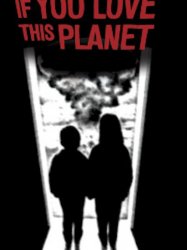
If You Love This Planet (1982)
, 26minutesOrigin Canada
Genres Documentary
Themes Environmental films, Documentary films about environmental issues, Documentary films about war, Documentary films about historical events, Documentary films about nuclear technology, Documentary films about technology
Rating71%





 Connection
Connection